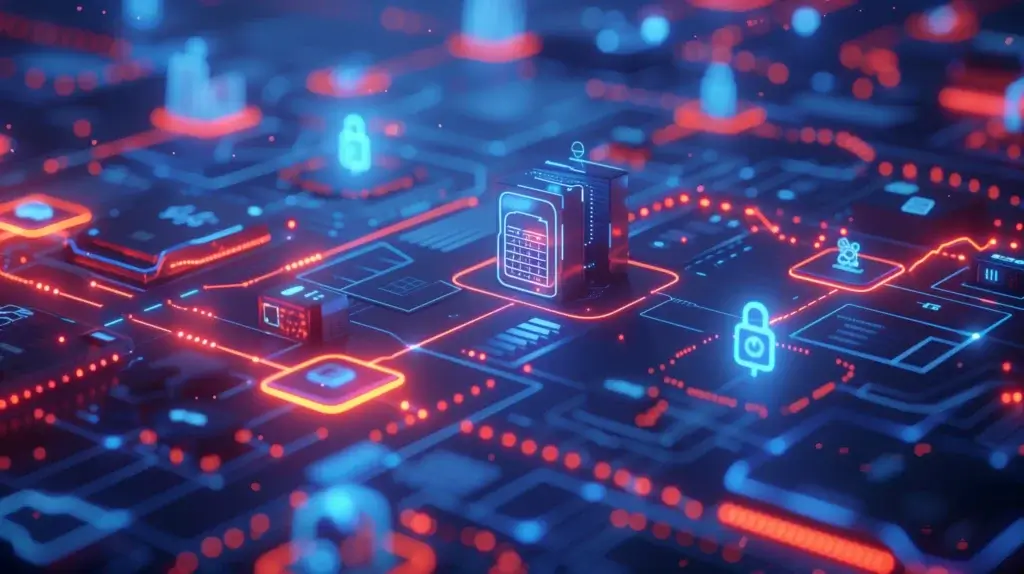The rise of AI integration in IoT products marks a transformative era in technology. By embedding artificial intelligence into Internet of Things (IoT) devices, we are witnessing a revolution in connectivity and automation. This seamless blend of AI with IoT not only boosts efficiency but also unleashes unprecedented opportunities across various sectors. As we delve into this fascinating subject, let’s explore how this integration is reshaping industries and enhancing our daily lives.

Understanding AI and IoT
The synergy between AI and IoT is profound. AI refers to machines’ ability to mimic human intelligence, enabling them to perform tasks like decision-making, language processing, and problem-solving. Meanwhile, IoT encompasses interconnected devices that collect and transmit data over the internet. By merging these technologies, we create smart systems capable of real-time data analysis and autonomous operations.
Benefits of AI Integration in IoT
Increased Efficiency
Integrating AI with IoT devices significantly enhances operational efficiency. For instance, smart factories utilize AI algorithms to optimize production processes, reducing waste and energy consumption. This results in cost savings and improved productivity.
Enhanced Decision-Making
AI-driven IoT systems analyze vast amounts of data swiftly, providing valuable insights for informed decision-making. Industries like healthcare, logistics, and agriculture leverage this capability to make data-driven choices that improve outcomes and reduce risks.
Predictive Maintenance
AI-powered predictive maintenance in IoT systems helps identify potential equipment failures before they occur. This proactive approach minimizes downtime, extends equipment lifespan, and reduces maintenance costs, benefiting industries reliant on complex machinery.
Applications of AI Integration in IoT
Smart Homes
In the realm of smart homes, AI-powered IoT devices automate tasks such as lighting, climate control, and security. These systems learn user preferences, adapting to their routines for optimal comfort and energy efficiency.
Healthcare
AI integration in IoT has revolutionized healthcare. Wearable devices monitor patients’ vital signs in real-time, alerting healthcare providers to potential health risks. This enables timely interventions and personalized treatment plans.
Transportation and Logistics
The transportation sector benefits from AI-enhanced IoT systems through improved traffic management and autonomous vehicles. Logistics companies utilize AI algorithms to optimize delivery routes, reducing fuel consumption and delivery times.
Challenges and Considerations
Data Security
With the proliferation of connected devices, ensuring data security is paramount. Organizations must implement robust cybersecurity measures to protect sensitive information from breaches and unauthorized access.
Interoperability
Achieving seamless interoperability between diverse IoT devices and AI systems can be challenging. Standardization efforts are crucial to ensuring that devices from different manufacturers communicate effectively.
Scalability
As IoT networks grow, scalability becomes a pressing concern. AI algorithms must be optimized to handle vast amounts of data and maintain performance as networks expand.
The Future of AI and IoT
The future of AI integration in IoT products is promising. As technology continues to evolve, we can expect even more sophisticated applications and innovations. The convergence of 5G connectivity, edge computing, and AI will further enhance IoT capabilities, paving the way for a connected world where devices seamlessly interact and collaborate.
Conclusion
In conclusion, the integration of AI in IoT products is a game-changer, revolutionizing industries and enhancing our quality of life. From smart homes to healthcare, transportation, and beyond, the possibilities are limitless. As we navigate this exciting journey, it’s crucial to address challenges such as data security and interoperability to fully harness the potential of this transformative technology.

FAQs
What is AI integration in IoT?
AI integration in IoT refers to embedding artificial intelligence into IoT devices, enabling them to perform intelligent tasks and make data-driven decisions.
How does AI enhance IoT efficiency?
AI enhances IoT efficiency by optimizing processes, reducing waste, and improving decision-making through real-time data analysis.
What are the challenges of AI integration in IoT?
Challenges include data security, interoperability, and scalability as IoT networks grow and evolve.
For more insights on IoT product development, visit this IoT product development guide. Additionally, explore this article for further understanding of AI and IoT integration.


